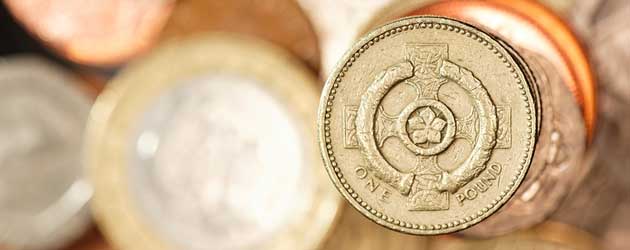
The Pound to Euro exchange rate grew by around a cent yesterday evening, peaking at 1.1718, as ECB board member and Bundesbank Chief Jens Weidmann poured cold water on recent speculation that the Eurozone had overcome the worst of the crisis.
Weidmann said: “the calm that we are currently seeing might be treacherous” because it could cause European leaders to get complacent and delay the reforms that are necessary to prevent further economic shocks.
In contrast to European Commissioner Joel Manuel Barroso’s comments earlier this month that: “the EU has come through the worst of the crisis”, Weidmann said that: “overcoming the crisis and the crisis effects will remain a challenge over the next decade”. The downbeat remarks betrayed investors’ appetite for risk and led to significant declines in European stocks.
Weidmann went on to say that the European Central Bank could introduce a lower benchmark interest rate to combat the Eurozone’s sluggish Consumer Price Index of 1.7%, which is below the Central Bank’s target of 2.0%. Alluding to former US President John F. Kennedy’s infamous inauguration speech: “ask not what your country can do for you – ask what you can do for your country”, the ECB board member said:
“Everyone is asking what more can the Central Bank do instead of asking what other policy makers can contribute…We might adjust in response to new information, however I don’t think that the monetary-policy stance is the key issue”.
It was also announced yesterday that European car makers suffered a -10.2% sales slump during March – falling to a near-20-year low. Germany, the currency bloc’s largest and robust economy, sunk to a worryingly steep -17.0% slide. The poor automobile manufacturing data combined with Weidmann’s dovish comments, damaged global risk sentiment. Subsequently Sterling (GBP/EUR) jumped higher by around 1.0 cent against the single currency.
The risk-busting news also allowed the Pound to benefit from defensive inflows from the commodity currencies. Sterling grew by around 0.3 cents against the Canadian Dollar (GBP/CAD), 0.9 cents against the Australian Dollar (GBP/AUD), and 0.6 cents against the New Zealand Dollar.
Prior to the German Central Banker’s comments Sterling had been subject to a battering right across the board in reaction to some weak UK jobs figures. The headline ILO Unemployment Rate ticked higher from 7.8% to 7.9%, but the real damage was dealt by an all-time low annual improvement in Average Weekly Earnings of just 0.8%. The slump in Unemployment was largely influenced by an influx of, previously inactive, workers to the labour market, but the slow wage growth figures paled in comparison to the current 2.8% rate of inflation. With wages failing to keep up with inflation, consumer spending is likely to remain constricted and this could have a detrimental effect on the British economy.
In other UK economic news, the Bank of England Minutes report showed that policy-makers voted 6-3 against adding to the asset purchasing target of £375 billion during April. The report fell largely inline with the market consensus and therefore had a muted effect on the Pound to Euro exchange rate (GBP/EUR).
Later on this morning UK Retail Sales are expected to print at 0.9%, but if it becomes apparent that household spending was negatively impacted by negative real wage growth, and Retail Sales come in worse-than-anticipated, then Sterling could come under further downward pressure.

Comments are closed.